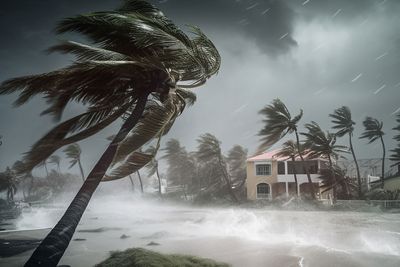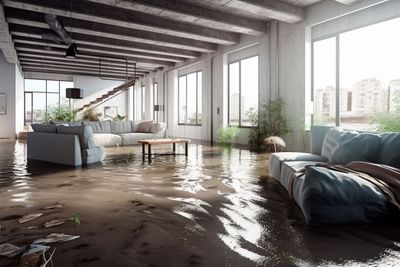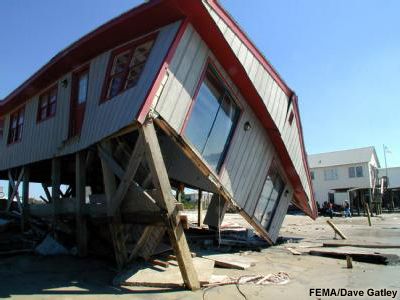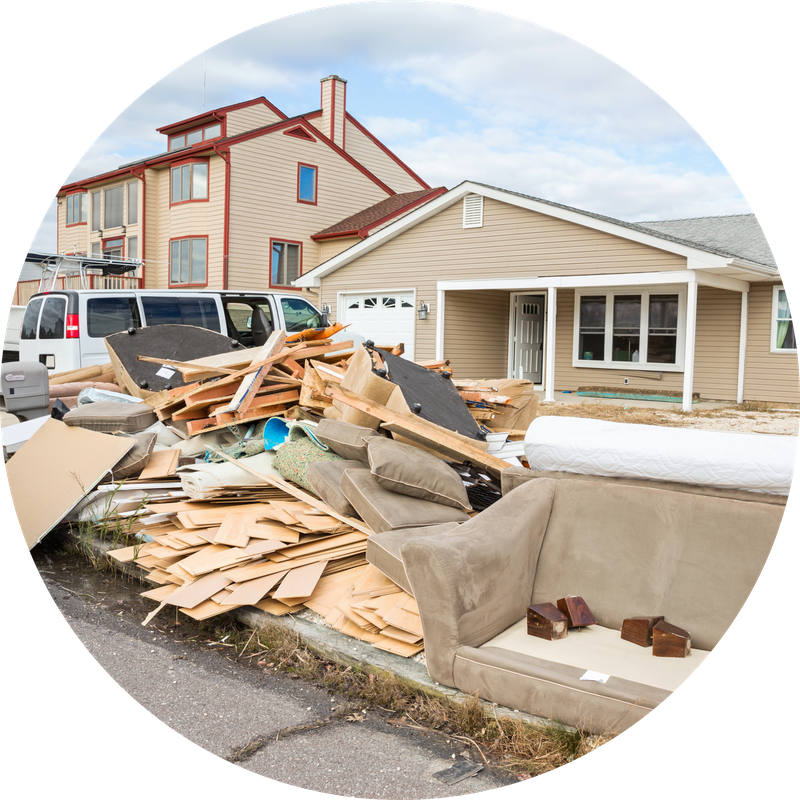Storm Surge and Public Adjusters

Florida homeowners are no strangers to the destructive power of storms, especially during hurricane season. Among the many dangers that these storms bring, storm surge stands out as one of the most severe threats to coastal properties. While storm surge and flooding are often discussed together, understanding the difference between the two is crucial when dealing with insurance claims. Insurance companies frequently try to categorize storm surge damage as flooding to limit their payout, leaving homeowners to fight for the compensation they deserve.
At Florida State Public Adjusters, Inc., we specialize in helping homeowners navigate these complex situations, ensuring you receive the full settlement you're entitled to after storm surge damage. Let’s dive into what storm surge is, the damages it can cause, how insurance companies might try to avoid paying claims, and how we can help maximize your settlement.
What Is Storm Surge and How Does It Differ from Flooding?
Storm surge occurs when powerful winds from a hurricane or tropical storm push seawater onto land, often raising sea levels by several feet or more. This surge of water can strike the coastline with immense force, resulting in the rapid inundation of coastal areas. Unlike flooding, which may occur gradually, storm surge can hit suddenly and without warning, particularly during high winds and large storm systems.
Storm surge can cause:
Massive Coastal Flooding
Water levels can rise quickly and with great force, covering streets, homes, and infrastructure in water. The powerful impacts from storm surge can cause structural issues that floodwaters simply can't.
Wind-Driven Water
Because of the high winds, storm surge often carries debris and seawater at high speeds, which can cause significant structural damage to buildings, including foundations, windows, and doors.
Significant Erosion
The force of the surge can erode beaches, shorelines, and coastal structures, further weakening the stability of properties. This increases your property's risk (and your safety) for future storms.
Flooding

Flooding, on the other hand, refers to the overflow of water from rivers, streams, or heavy rainfall, often caused by persistent, localized rainfall or rising water levels in an area. While storm surge is driven by wind and the power of the ocean, flooding is more of a gradual process, even though the damage can still be significant.
Insurance companies may argue that the damage caused by storm surge is actually flood damage, which could affect your policy’s coverage. In many cases, flood damage is covered by a separate policy, such as a National Flood Insurance Program (NFIP) policy, while storm surge damage may be included in a homeowner’s insurance policy if the cause of the damage is linked directly to wind-driven storms.
Common Damages Caused by Storm Surge
Storm surge can result in extensive property damage, and understanding what is covered under your insurance policy is key. Here are some of the most common damages caused by storm surge:
Structural Damages to Buildings
The sheer impact of storm surge water can severely damage the structure of a building. The force of water can weaken foundations, crack walls, and displace heavy materials. For homes near the coast, especially those with lower elevations, the risk of structural damage is heightened. Water can erode the foundation or carry debris, such as rocks or trees, which can damage the building’s frame, roof, and exterior.
Water Intrusion and Internal Damage
When storm surge water floods a home, it infiltrates not only the exterior but also the interior of the property. Walls, flooring, and ceilings can become soaked, leading to immediate damage. For homes with wooden or laminate floors, the water can warp or rot the materials, while drywall and insulation can absorb water, leading to mold growth and potential health risks.
Wind Damage and Debris
Along with the water, storm surge often brings high winds that can further damage a home’s structure. The wind-driven debris, such as tree branches, roofing materials, and pieces of broken furniture, can shatter windows, puncture the roof, and break walls. This combined impact of wind and water creates a one-two punch that is especially devastating.
Electrical Hazards and Fire Risks
When storm surge floods a home, it can also damage electrical systems. Water intrusion into electrical outlets, wiring, and circuit boards can cause short circuits or even fires. The risk of electrocution is also heightened if water reaches electrical systems. Electrical fires caused by damaged wiring can spread quickly, compounding the dangers of storm surge.
Sewer Backup and Contamination
As storm surge pushes inland, it can disrupt local sewer systems, leading to sewage backup into homes. This not only causes water damage but also introduces health hazards due to bacterial contamination. Homeowners may need (at bare minimum) professional cleaning and disinfecting services to ensure their property is even safe for re-entry, yet alone habitable.
Coastal Erosion and Landscaping Loss
In addition to structural damage, storm surge can significantly alter the surrounding landscape. Coastal erosion, where the force of the water erodes the shoreline, can wash away parts of the yard or surrounding infrastructure. Landscaping, fences, and outdoor structures like pools and patios may be swept away by the surge.
Insurance Struggles: Denials and Delays After Storm Surge Damage
Dealing with insurance claims following storm surge damage can be a frustrating process. Homeowners are often left to navigate complex policies and fight for the compensation they deserve. Insurance companies may try to minimize payouts or even deny claims based on the following common reasons:

1. Misclassification of Storm Surge as Flood Damage
Insurance companies often argue that storm surge damage is flood damage, which can lead to the application of different coverage limits. Flooding, especially as defined by the National Flood Insurance Program (NFIP), is a different peril than storm surge, and homeowners may not have flood insurance unless they specifically purchased a flood policy. Insurance companies may deny storm surge damage claims if they categorize it as flood damage.
2. Policy Exclusions for Windstorm or Hurricane Damage
Some homeowners’ policies exclude certain types of water damage caused by hurricanes or windstorms. If a policy specifically excludes storm surge, your claim may be reduced or denied. This is why it’s critical to have a policy that includes hurricane or windstorm coverage, which covers damages caused by wind-driven water.
3. Low or Insufficient Coverage Limits
Even if storm surge damage is covered, many homeowners may be surprised to find that their coverage limits are insufficient. Insurance policies may have limits on how much they will pay for specific types of water damage, mold remediation, or structural repairs. Your policy may not cover the full extent of repairs required to restore your property.
4. Delays in Filing Claims
Insurance policies often have strict timeframes for filing claims. If there is a delay in reporting the damage, your claim may be rejected, especially if the damage worsened due to the delay. The sooner you file your claim, the better your chances of receiving a full payout for the damage.
Water Damage Caps
We fully document all covered damages, maximizing your payout within policy limits while minimizing the effect of any water damage limitations on your claim.
Mold Remediation
If mold coverage is limited, we can identify additional avenues for compensation, such as extensions for hidden damages. Sometimes, your mold damage limit may not even apply to your specific loss!
These challenges often leave homeowners feeling overwhelmed and undercompensated — but that’s where our team can make all the difference.
How We Can Help
If you’ve experienced storm surge damage to your home, we can help you get the compensation you deserve. We specialize in negotiating with insurance companies to ensure that homeowners receive fair settlements.
Here’s how we can assist you:

1. Comprehensive Damage Assessment
Our team of experts conduct thorough inspections of your property to document all storm surge damages. We identify structural damage, interior water damage, mold, and any other damages related to the surge, properly accounting for every loss related to your claim.
2. Policy Analysis and Advocacy
We carefully review your homeowner’s policy to understand the coverage you’re entitled to. If storm surge damage is being incorrectly classified as flood damage, we’ll fight for the appropriate classification and coverage. We also work hard so that exclusions, such as those for mold or hurricane-related damage, are fairly addressed.
3. Handling Communication with Insurers
Dealing with your insurance company after a storm surge can be overwhelming. We handle all communication, ensuring that your claim is processed as smoothly and efficiently as possible. We work directly with your insurer to fight for the maximum payout based on your policy’s coverage.
4. Expert Negotiation
Insurance companies may try to offer a settlement that’s less than what you need to repair your home. Our public adjusters are skilled negotiators who advocate for a fair settlement, ensuring that your rights within the policy are observed while fighting for all aspects of the damage to be properly valued and compensated.
5. Support Every Step of the Way
From filing the claim to resolving disputes, we’re with you at every stage of the process, reducing your stress and allowing you to focus on restoring your home.
Why Choose Us?

When you’re dealing with the aftermath of storm surge, you need a team that’s on your side. We bring experience, expertise, and a commitment to securing the best possible outcomes for our clients.
Here’s what sets us apart:
- Licensed Professionals: Our team is fully licensed and bonded in Florida and Colorado, giving us the knowledge and advanced training to represent you with confidence.
- Deep Industry Knowledge: With years of experience in Florida’s and Colorado's unique insurance landscapes, we understand the challenges homeowners face with storm surge claims.
- Client-Centered Approach: Unlike the carrier's field adjusters, we work exclusively for policyholders — your best interests are always our #1 priority.
- Proven Track Record: We've helped countless homeowners recover fair settlements, even in particularly complex storm surge claims.
We will always offer the following:
- Free, no-obligation consultations
- Experienced, licensed public adjusters
- Thorough, accurate damage assessments
- Aggressive negotiation with insurers
- Complete claim management, from start to finish
Storm surge damage can be devastating, but it doesn’t have to be financially crippling. If your Florida home has been impacted by a storm surge, we are here to help you maximize your insurance settlement. We’ll fight for your rights and work tirelessly to ensure that your home is fully restored.
Contact us today for a free consultation, and let us help you navigate the insurance claims process with confidence.
Call (888) 518-5678 or email admin@floridastatepa.com to get started!